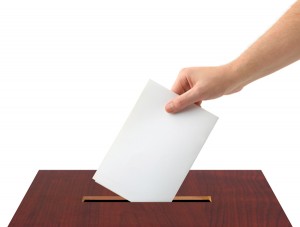 By Steve Brawner
By Steve Brawner
© 2016 by Steve Brawner Communications, Inc.
Should judges in Arkansas be democratically elected after collecting campaign donations from the same lawyers and corporate interests that bring cases before them? Or should an appointment process be created, reducing the influence of money but also the role of the voters?
Because we already use deeply flawed process number one, we probably will not open up the can of worms that would accompany flawed-in-other-ways process number two.
The past few years have demonstrated some of the challenges with electing judges. In one case, a circuit judge reduced a jury’s verdict in a nursing home case from $5 million to $1 million after receiving campaign money from the nursing home’s owner. That judge pled guilty to bribery, was sentenced to 10 years and has since appealed. Meanwhile, the past few Supreme Court races have sunk beneath the dignity of the office because of ad campaigns run by anonymously funded, independent political action committees, otherwise known as “dark money.” One losing candidate, Tim Cullen, was dragged through the mud because he had once been appointed by a judge to represent a convicted sex offender – a distasteful assignment to be sure, but in America, unlike in some other places, we try to guarantee the right to a fair trial.
In addition to the corrupting influence of money, the other problem with electing judges is that voters have limited information. Candidates aren’t supposed to tell us how they’ll vote on cases because they should remain neutral until they hear the facts in court. Also, judicial elections are nonpartisan, so voters can’t use party labels as a guide. Ironically, the other problem with judicial campaign donations is that candidates don’t collect enough to purchase a big ad campaign that would really introduce themselves. The whole process results in many voters picking a name on a list.
But for all their messiness, elections are the way we do things in America. It’s how we imperfectly keep small groups of individuals from amassing power and acting contrary to the people’s will from behind closed doors.
The difficulty of coming up with a better system was demonstrated Friday during a meeting of the Arkansas Bar Association’s House of Delegates, the attorney group’s policymaking body. A task force had submitted a plan for electing Supreme Court justices where an appointed commission would offer three names to the governor, who would then choose one. According to the proposal, 22 states use that kind of process. If it passed, the Bar would find a legislator sponsor who would try to get it referred to the voters in 2018 as a proposed constitutional amendment.
The vote was 34-20 in favor, which was short of the required three-fourths majority, so it died. During the debate, a couple of the delegates said their lawyer constituents overwhelmingly oppose ending elections. Another delegate relayed a message from the five returning Arkansas Supreme Court justices and the two recently elected ones revealing that they unanimously support keeping elections. By voting for the proposal, the attorneys would be at odds with the justices before whom they may someday appear.
There are lots of ways to select judges. In some states, including Missouri, a commission presents nominees, the governor appoints one, and then, after a probationary period, the judge stands before voters in an up-or-down retention election with no other candidates on the ballot. But in the spirit of this glass-half-empty column, retention elections have the same issues as the current system – money and politics.
Even without the Bar’s support, some legislator next year probably will propose a constitutional amendment for appointing rather than electing judges. Gov. Asa Hutchinson favors some kind of change. However, there’s not widespread support in the Legislature – not enough to make it one of two or three issues referred to the voters. As another solution, Democrats have introduced a bill that would require dark money groups to disclose their donors. However, there aren’t many Democrats left in the Legislature, and besides, an argument can be made that people have a right to donate anonymously to groups that align with their beliefs.
So in 2018, we’ll probably be electing judges and justices pretty much like we have in the past. It’s not perfect, but, as is often the case, we’ll choose the problems of the current system over different problems that would come with a new one.
